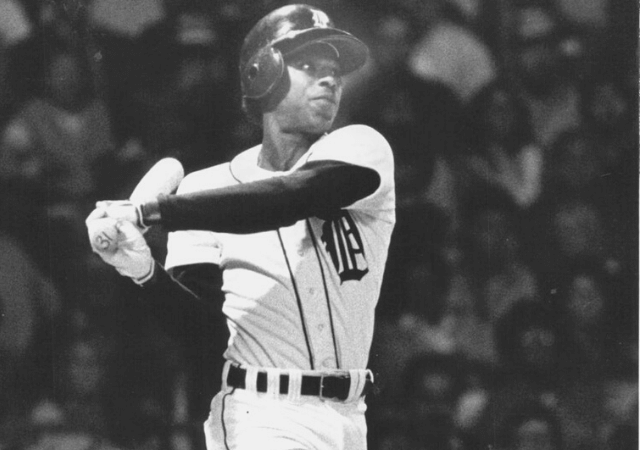Tiger fans are upset that Lou Whitaker was passed over in the recent Baseball Hall of Fame “Modern Game” Eras Committee voting. Whitaker played 19 seasons in Detroit, teamed with Alan Trammell up the middle, so it’s understandable that the popular infielder elicits such a passionate response in the Motor City.
But there may be a great big silver lining in the election results.
The only player to be elected via the committee was former catcher Ted Simmons, who received 13 of the 16 votes, one more than he needed. Simmons waited a quarter of a century since he became eligible for the Hall of Fame. He appeared for the first time on the Baseball Writers ballot in 1994.
What does this have to do with Whitaker?
Tell me if this sounds familiar, Detroit fans:
1. Simmons appeared just once on the BBWAA ballot, disappearing after one try because he failed to achieve the five percent necessary to remain on the ballot.
2. Simmons had a long, steady career and reached several significant milestones for a player at his position.
3. And lastly, Simmons’ Hall of Fame case has been bolstered by the efforts of the Sabermetric community.
Sounds a lot like Sweet Lou, doesn’t it?
That bodes well for Whitaker, who appeared for the first time on an “Eras” ballot this year. Ask most stat-minded fans, and they’ll reflexively tell you that Whitaker is a slam dunk Hall of Famer. His career Wins Above Replacement ranks 49th all-time among position players. He ranks seventh among second baseman, and the six men in front of him are all in the Hall of Fame. Sweet Lou is a darling of the statheads and numbers geeks.
Both Simmons and Whitaker had lengthy careers with no notable peak season. They both plugged along at All-Star caliber (or near it) for a decade-plus. Neither of them rate as high in “peak value” (Simmons is 14th at his position in WAR for his seven best seasons, Whitaker is 20th), but they rarely had a bad season.
A large part of their value, Simmons and Whitaker, was their dependable year-in year-out performance. But neither man had that monster MVP-type season. Neither Simmons nor Lou led their league in any significant offensive category. But their consistent value piled up over time, until it grew into a mountain of accomplishment that was hard to dismiss.
In 1994, Simmons debuted on the Writers’ ballot and received just 17 votes. In 2001, Whitaker got only 15 votes in his first appearance on the ballot. Since they fell below the threshold, both men were erased from future consideration by the BBWAA. That left their fate in the hands of a smaller veterans committee.
There was no “unified theory of baseball superiority” in 2001. Wins Above Replacement and a few other statistics have since evolved into something like that. When Simmons was on the ballot, he was largely judged based on his career batting average and performance in MVP voting, as well as 100-RBI seasons and the like. While Simmons has an excellent average for a catcher, the voters have been notoriously stingy at electing catchers, choosing to wave in guys that are no-doubters like Johnny Bench, but snubbing others. It took Gary Carter six tries to be elected by the Baseball Writers, and even Carlton Fisk and Yogi Berra were forced to wait until their second time on the ballot. The Hall of Fame has elected fewer catchers and second basemen than any position except third base.
His accumulated greatness lifted Simmons back to the ballot in a second chance at Hall of Fame election, thanks in large part to a modern, “holistic” view of his career.
“I have to be honest,” Simmons said Monday during a press conference, “if it weren’t for the analytics people, my career as a potential Hall of Famer probably would have been shut down and forgotten about a long time ago.”
If Lou Whitaker is to be elected to the Hall of Fame, that’s going to be the case also. If that happens, it will make a lot of Detroit Tigers fans very happy.



